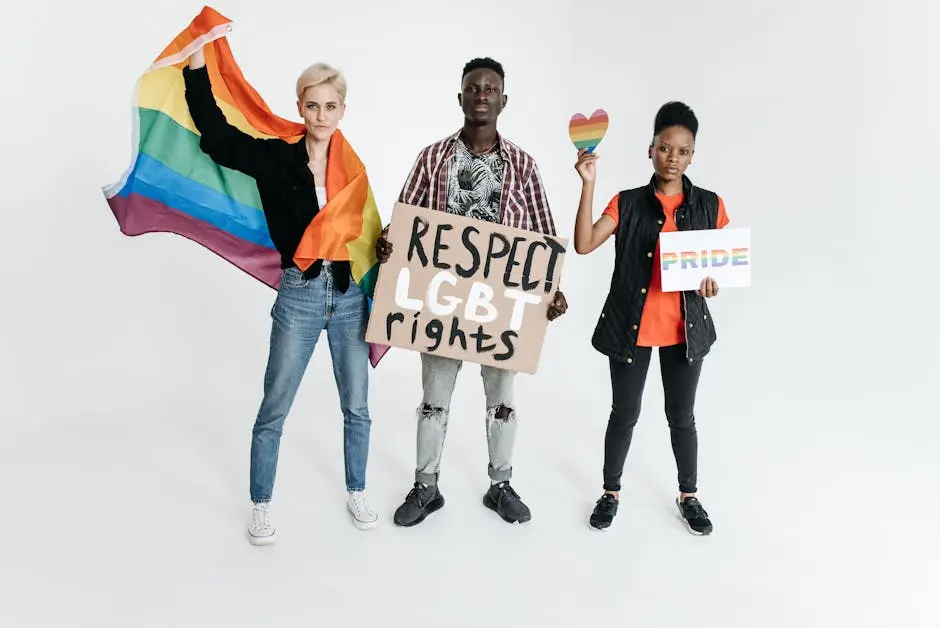In recent years, Texas has seen a growing need for improved communication strategies to support the LGBTQ+ community. Whether it’s providing inclusive education or ensuring everyone has access to necessary resources, effective communication plays a pivotal role in creating an environment of acceptance and understanding. This blog explores the various strategies being implemented to support LGBTQ+ individuals in Texas, offering insights into what works and why it’s important.
Understanding the Importance of Inclusive Language
Inclusive language serves as the foundation for successful communication. By using terminology that respects and acknowledges diverse identities, we create spaces where everyone feels valued and understood. For example, small shifts such as using gender-neutral pronouns or avoiding assumptions about sexual orientation can make a significant difference. These changes help dismantle stereotypes and promote a more inclusive environment for LGBTQ+ individuals. In an era where gender identity is increasingly recognized, the importance of using appropriate language cannot be overstated.
Moreover, adopting inclusive language requires continuous learning and adaptation as society evolves. Developing workshops and training programs for businesses and organizations in Texas can greatly aid in this transition. These educational opportunities allow individuals to explore the nuances of language, discover common experiences, and better understand how their words can impact others. As a result, adopting inclusive language becomes a collaborative effort, ultimately fostering a supportive community across the state.
Creating Safe Spaces Through Community Initiatives
Community-led initiatives, such as support groups and informational workshops, provide vital safe spaces for LGBTQ+ individuals. These initiatives encourage open discussions, offer support, and help build a sense of belonging. In Texas, organizations have been working diligently to establish and maintain these environments. According to a study on safe spaces in schools, creating affirming environments significantly reduces harassment and discrimination.
Another effective community initiative involves organizing events specifically geared toward fostering connections and understanding within the LGBTQ+ community. From festivals to panel discussions, these events not only raise awareness but also serve as platforms for diverse voices. By celebrating individuality and shared experiences, participants often leave with a renewed sense of pride and belonging. Such community efforts underscore the power of collective action in advancing LGBTQ+ rights and support systems. For those looking to get involved or learn more, volunteer opportunities are available through various local organizations.
Role of Educational Programs in Advocacy
Educational programs focusing on LGBTQ+ issues are crucial in spreading awareness and fostering acceptance. Schools and organizations can work together to create curricula that address these important topics, promoting empathy and understanding among students and staff alike. Incorporating LGBTQ+ history and social studies not only enriches academic experiences but cultivates a culture of empathy and inclusiveness. In fact, studies show that comprehensive LGBTQ+ education can significantly reduce bullying and improve mental health outcomes for students.
However, for educational programs to be truly effective, it is crucial to involve actual members of the LGBTQ+ community in the planning and implementation process. Listening to firsthand experiences and incorporating diverse perspectives ensures that curricula are both relevant and impactful. Collaborating with educators, policymakers, and advocacy groups can foster an educational landscape where every student feels seen and heard.
Leveraging Social Media for Broader Outreach
Social media has emerged as a powerful tool for reaching wider audiences and advocating for LGBTQ+ rights. By leveraging these platforms, supporters can spread positive messages, share stories, and connect with others globally. Campaigns such as #LoveWins and #ItGetsBetter have gained traction, highlighting influential stories of resilience and acceptance. These digital platforms have the unique ability to facilitate discussions on a wide scale, enabling movements to gain momentum and foster change in real-time.
In Texas, using social media strategically involves crafting digital campaigns that resonate with both local and global communities. Encouraging individuals to share their personal stories can humanize the broader struggle for acceptance, making it more relatable to diverse audiences. Furthermore, collaborations with influencers and activists offer new avenues to amplify messages and mobilize support. Social media remains a vital element in modern advocacy efforts, empowering users to become advocates themselves and driving tangible, positive change.
The Role of Partnerships with Local Organizations
Partnering with local organizations can amplify efforts to support the LGBTQ+ community. By collaborating, these organizations can pool resources and expertise to make a more significant impact, ensuring that support reaches those who need it most. For example, initiatives like community resource networks bring together various services, such as healthcare, legal assistance, and mental health support, tailored specifically for LGBTQ+ individuals.
Moreover, these partnerships often extend beyond logistical collaboration to encompass financial backing and outreach. By working together, organizations can host larger events, conduct wider-reaching campaigns, and better adapt to the ever-changing needs of the community. This collective approach not only maximizes available resources but also fosters an enduring, unified front in the fight for equality and support. To start a partnership or learn more about potential collaborations, visit our partner page.
Importance of Listening and Responding to Feedback
Feedback from the community is invaluable in shaping effective communication strategies. By actively listening and responding to concerns, organizations can adapt their approaches to better serve the needs of LGBTQ+ individuals. This process begins with establishing clear channels for feedback, such as surveys, focus groups, or forums, which provide community members with a safe space to voice their opinions.
Once feedback is gathered, it’s equally important to implement changes and communicate these adjustments back to the community. This fosters transparency and demonstrates a genuine commitment to meeting the needs of the LGBTQ+ population. In Texas, several organizations have embraced this cyclical process, enabling them to remain adaptable and relevant in their advocacy efforts. A culture of responsiveness not only strengthens trust but also empowers individuals to engage more actively with ongoing initiatives.
The Impact of Effective Communication
Effective communication is the cornerstone of fostering inclusivity and support for the LGBTQ+ community in Texas. By utilizing diverse strategies and fostering open dialogue, we can work towards a more understanding and inclusive society. As we continue to learn and adapt, the importance of collaboration and community cannot be understated. Together, we make a lasting difference. For more information on how to support these efforts, visit our homepage.





